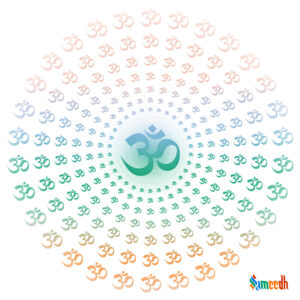The Nath tradition, also known as the Natha Sampradaya, is a prominent Hindu religious tradition that traces its origins to ancient India. It is associated with the teachings of Gorakhnath, who is considered one of the most important figures in the tradition. The Nath tradition is a synthesis of various elements including yogic practices, Tantra, and devotion to the divine.

The Nath tradition is one of the oldest surviving lineages in Hinduism, dating back to ancient times. It has played a crucial role in preserving and transmitting various spiritual and yogic teachings across generations. Nath yogis have been instrumental in popularizing and systematizing various forms of yoga and meditation practices. Through their teachings and practices, they have contributed to the spiritual development and well-being of countless individuals.
The Nath tradition places a strong emphasis on the relationship between the guru (teacher) and shishya (disciple). The transmission of knowledge, practices, and spiritual guidance occurs through direct personal interaction between the guru and disciple.
The Nath tradition is deeply rooted in yogic practices. Nath yogis are known for their expertise in various forms of yoga, including Hatha Yoga, Kundalini Yoga, and Raja Yoga. Meditation techniques are also central to their practice, with a focus on achieving spiritual awakening and liberation (moksh).
Tantra, which involves the ritual use of mantras, yantras, and other esoteric practices, is another significant aspect of the Nath tradition. However, it’s important to note that Nath Tantra is often distinct from the more popularized forms of Tantra associated with ritualistic practices.
Nath yogis are often associated with asceticism and renunciation. They may lead simple, austere lives, often living in forests, caves, or remote areas, while dedicating themselves to spiritual practices and the pursuit of enlightenment.
The Nath tradition incorporates elements of various philosophical schools, including Advait Vedanta (non-dualistic philosophy) and Shaivism. Central to their philosophy is the concept of the unity of the individual soul (Atman) with the universal consciousness (Brahman).
Historically, Nath yogis have had a significant impact on Indian society. They played roles as spiritual teachers, healers, and social reformers. Some Nath yogis were also warriors who defended their communities.
The Nath tradition has a rich literary tradition, including texts such as the Natha Siddhas’ writings, the Goraksha Samhita, and various other scriptures and texts attributed to Nath yogis.
Overall, the Nath tradition represents a multifaceted and dynamic aspect of Hindu spirituality, encompassing yoga, meditation, Tantra, philosophy, and a distinctive guru-disciple tradition. It continues to be influential in contemporary Hinduism, with numerous practitioners and followers across India and beyond.